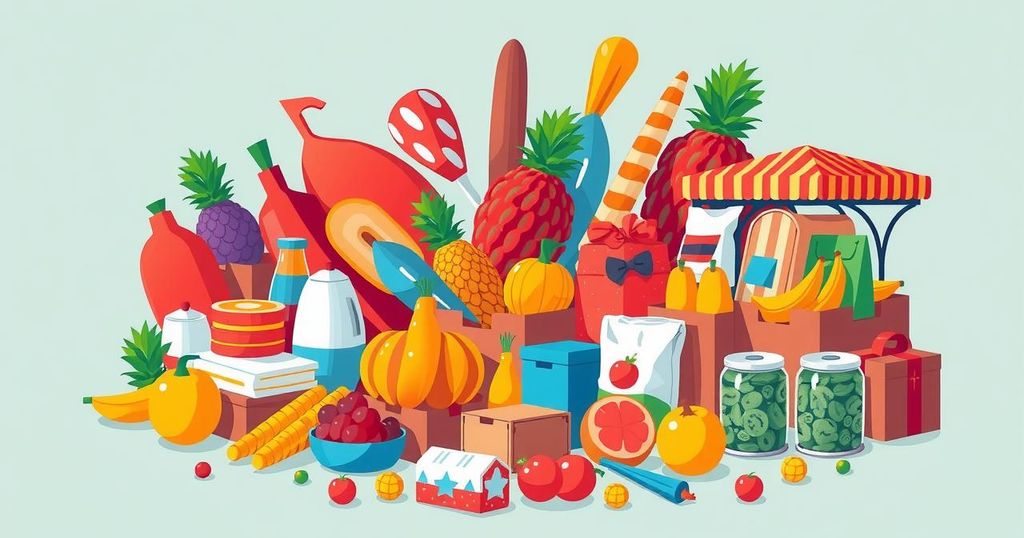Nigerians Expend N21 trillion on Food Importation Over Four Years
Nigeria has imported goods worth N21.51 trillion in four years, with N6.77 trillion spent on foodstuffs. Spending trends show increasing reliance on imports across various categories, including textiles and plastics, despite local production efforts.
According to data released by the National Bureau of Statistics, Nigerians expended a remarkable N21.51 trillion on the importation of various goods, especially foodstuffs, over the last four years. Despite governmental initiatives to enhance local production, the reliance on imports continues to escalate across numerous sectors.
Out of the total N21 trillion, N6.77 trillion was allocated for the importation of prepared foodstuffs, beverages, spirits, vinegar, and tobacco. In 2020, expenditures in this category amounted to N594.08 billion, ascending to N903 billion in 2021 and N976 billion in 2022. Notably, this spending increased to N1.51 trillion in 2023 and peaked at N2.79 trillion in 2024.
Additionally, the importation of live animals and animal products saw considerable growth, with N3.64 trillion spent over the examined period. In 2020, this category cost N454.52 billion, followed by N551 billion and N549 billion in 2021 and 2022, respectively. By 2023, spending climbed to N597 billion, culminating in N1.49 trillion in 2024.
Lesser import categories, including footwear, headgear, umbrellas, and sunshades, also showcased significant increases. Expenditures rose from N23 billion in 2020 to N65 billion in 2024, totaling N167 billion over the four years.
The import expenditure on plastic, rubber, and related articles surged to N7.72 trillion, with N609 billion spent in 2020 and growing to N3.46 trillion in 2024. Furthermore, the importation of textiles, a former strength of Nigeria, comprised N1.93 trillion, illustrating a steady increase from N183 billion in 2020 to N726 billion in 2024.
Wood and related articles, including charcoal, accounted for N909 billion in imports over the four years, while N373 billion was dedicated to raw hides, skins, leather, and saddlery products. The amount spent surged from N30 billion in 2020 to N157 billion in 2024. These statistics underscore Nigeria’s ongoing dependency on imports, despite existing policies aimed at promoting local production.
In summary, Nigeria’s substantial expenditure on food and goods imports, amounting to N21.51 trillion over four years, highlights the persistent dependence on foreign products. The continuous rise in spending across various categories such as foodstuffs, live animals, textiles, and plastics indicates challenges in achieving self-sufficiency. These findings emphasize the need for effective strategies to boost local production and reduce reliance on imports.
Original Source: punchng.com




Post Comment